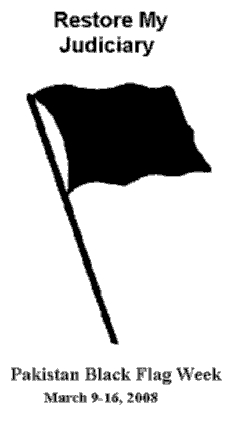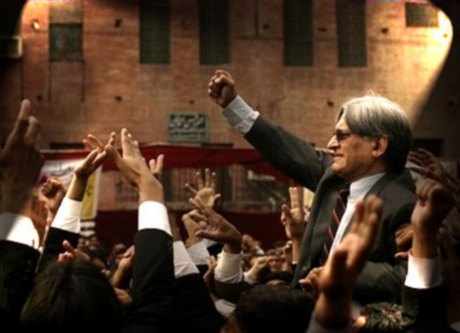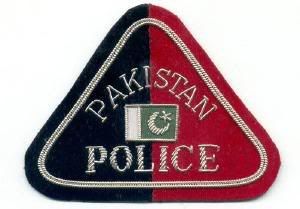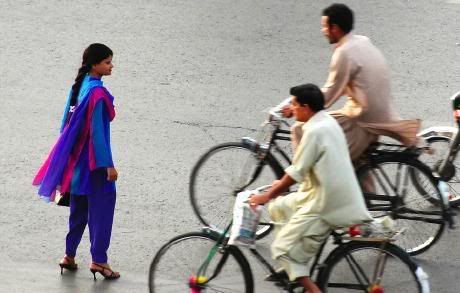 Adil Najam
Adil Najam
The judiciary issue remains an irritant to the mainstream political forces in Pakistan – including not just the current establishment but the current opposition forces struggling to become part of the new establishment.
The announcement from Asif Ali Zardari and Nawaz Sharif that they intend to restore the judiciary within 30 days of the formation of the parliament is good news. But given the constitutional shenanigans that we have all become used to it remains unclear (a) whether they will be ‘allowed’ to do so, and (b) if so just what form a ‘restoration’ might take.

More importantly, this announcement is a recognition of the political reality that the judiciary issue has become. Thanks, in part, to the tenacity and sagacity of Aitzaz Ahsan – who has not emerged as the key leader not only of the “Justice Movement” but of a larger civil society rising – the issue not only survives, but thrives. It never really was just about the Chief Justice, and is now clearly about much more – especially including the independence of the judiciary as an institution, about the rule of law, and about the sanctity of the constitution.
Read Full Post
Hassan Abbas
[Note: A more recent report on police reform in Pakistan by Hassan Abbas is now available. Police & Law Enforcement Reform in Pakistan: Crucial for Counterinsurgency and Counterterrorism Success. ISPU, April 2009]
“The first observation I would like to make is this. You will no doubt agree with me that the first duty of a government is to maintain law and order so that the life, property and religious beliefs of its subjects are fully protected by the state.”
– Quaid-e-Azam Mohammad Ali Jinnah’s address to the Constituent Assembly on Aug 11, 1947.
 The police in Pakistan have a terrible reputation.
The police in Pakistan have a terrible reputation.
There appears to be an across-the-board consensus that the institution of police is largely corrupt, often brutal and institutionally incompetent. Consequently, justice is elusive, insecurity is rampant and ordinary people are the worst victims of this system. Without a doubt there is an element of truth in these perceptions — actually a lot of truth. However, in an overall scenario and in comparative terms, police performance is not much different from the output of customs officials, bureaucrats running the provincial and federal secretariats, intelligence services and even the army when it tries to run the country. The police gets the most blame though because it is visible to everyone and is expected to do everything ranging from crisis management to resolving political and legal disputes — besides facing the wrath of people in response to the blunders committed by the country’s leadership — both political and military. Still, the police cannot be defended for its routine excesses, violations of human rights and inefficiency.
Read Full Post
Adil Najam

As a rule, we try not to repeat posts too often. Sometimes, we feel that the message is either pertinent again or that the original may not have been seen by a new crop of readership. I am reposting this picture and this post, originally posted on this date last year, because the message is even more pertinent today than it was a year ago, and because I feel like I need to say it again.
For Pakistan, this has again been a year of struggles as well as achievements for women. It marked the assassination of Benazir Bhutto – clearly the best known Pakistani woman, whatever you think of her politics. It marked also an election that saw more women win on general seats than ever before in Pakistan. But there was more, much more, to the daily struggles and achievements of Pakistan’s 70 million women that we need to celebrate. Today, and everyday.
In the metaphor of the original post, the message is that we all are (not just women, but men too) crossing the road to better gender relations, but we ain’t there just yet. Not by a long shot. Read on, please, even if you have read it before. What follows is my original post from last year.
Read Full Post
 Adil Najam
Adil Najam

 The police in Pakistan have a
The police in Pakistan have a 























































